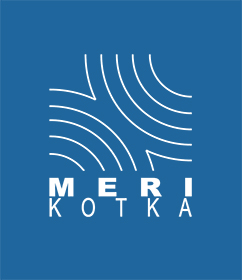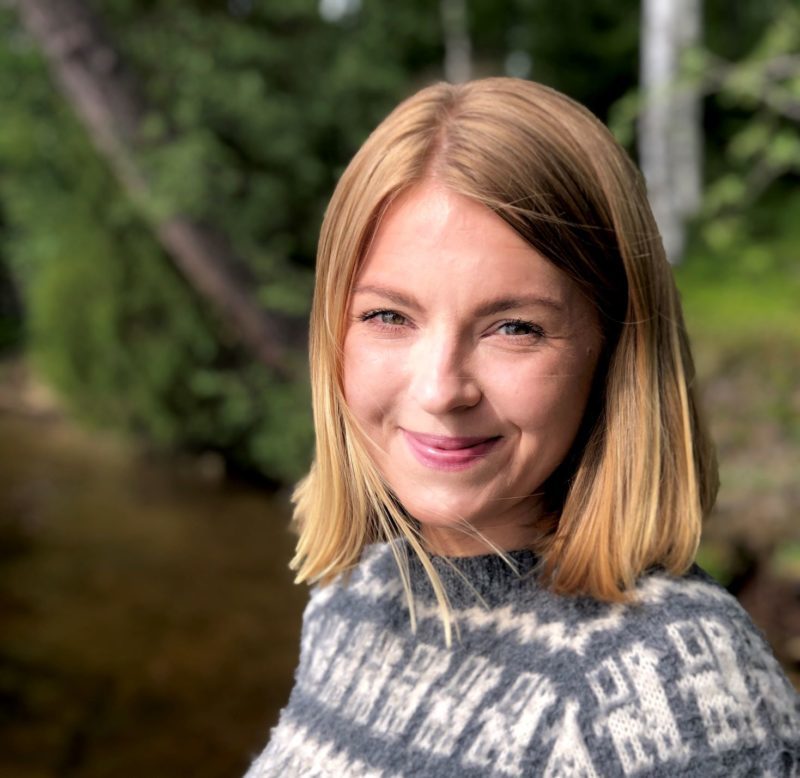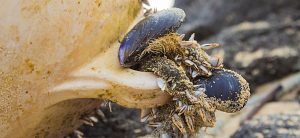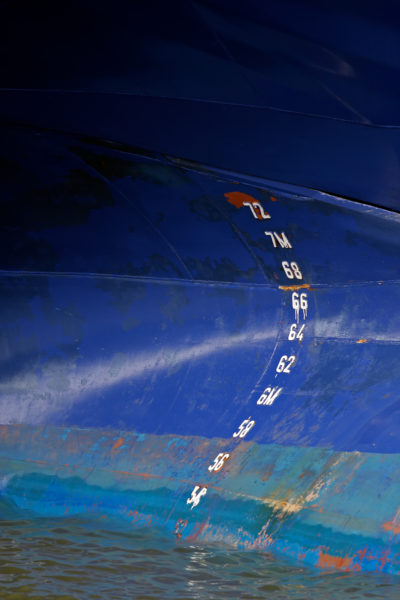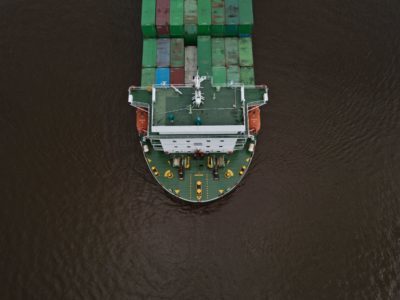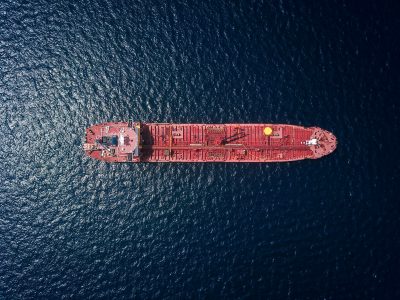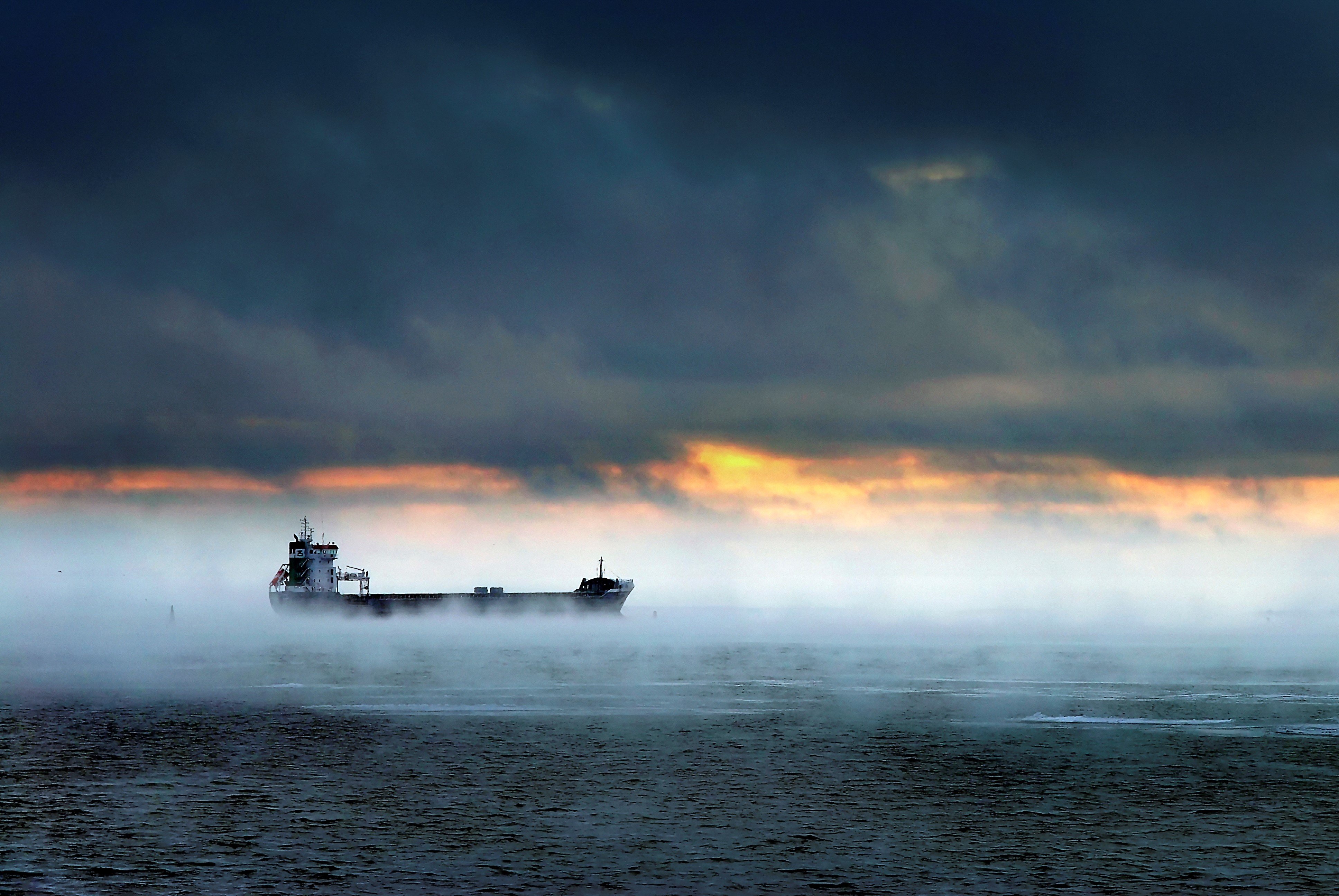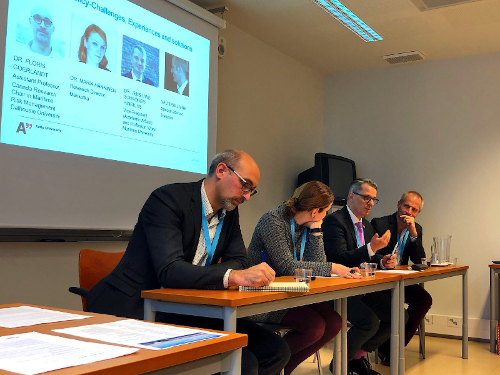On September 24-25, 2019, University of Turku hosted The Baltic Seas International Maritime Conference with a theme “European Maritime Research from Adriatic to Baltic”. On the second day of the conference, Kotka Maritime Research Centre and BONUS BALTIMARI project jointly hosted a session which included a panel discussion on strategies for improving uptake from research to practice. Here is a brief summary of the panel.
The panelists
- Floris Goerlandt, Canada Research Chair in Risk Management for Marine Industries
- Maria Hänninen, Research Director at Kotka Maritime Research Centre (Merikotka)
- Jens-Uwe Schröder-Hinrichs, Vice-President (Academic Affairs) and Professor, World Maritime University
- Valtteri Laine, Special advisor, Traficom
Moderators
- Ketki Kulkarni, Postdoctoral Researcher at Aalto University
- Anish Hebbar, Assistant Professor at World Maritime University
Highlights of the discussion
Dr. Floris began the session by speaking about different types of research affecting practice: basic science, use-inspired fundamental research and applied research. He emphasized the need for researchers to be flexible and accessible to policy-makers. He spoke about the importance of building relationships and ground rules with policy-makers.
Next, Dr. Maria shared her experiences of bridging the gap from research to practice. She mentioned how policy makers often require solutions in shorter times and research typically takes longer. However, she noted from experience that researchers are interested in practical problems and decision makers are interested about new research.
Dr. Jens highlighted the need for evidence-based research. He mentioned how scientific research often provided complex answers, while decision makers required easy-to-understand answers, which a wider range of people can comprehend.
Valtteri mentioned that the best way for policy-makers to be informed about scientific advances is through interactions like round-tables and closed group meetings. Often, policy-makers do not have access to scientific databases and that inhibits their search for current scientific works.
Dr. Maria was asked about how researchers could meet the timelines for policy-makers, given their different approaches and planning horizons. She mentioned that it would help to understand the sociology of risks and learning how decision-making works. This way, researchers to could aim for predicting the questions of the policy-makers in the future and plan research accordingly. Dr. Jens added that to convince to stakeholders about the validity of research, once again throws the spotlight on the need for evidence based research.
Dr. Floris was asked about how much importance do academics place on Technology Readiness Level (TRL). He stated that pursuing TRL was quite difficult in academia, since it would require sustained monetary and development efforts over a long period on a single project. A commentor from the audience pointed out that projects with higher TRL levels from academia, although appreciated by policy-makers, do not necessarily help young academics advance in their career. This is because they do not produce citations, which are required by researchers. Dr. Floris highlighted the efforts of BONUS, H2020 and other agencies in pushing for higher TRL in their projects and thought them to be better advocates for TRL, rather than universities.
Dr. Jens discussed how the metrics for academic performances are also now evolving, with more universities looking at TV, social media coverage and impacts of dissemination across all technological platforms (for example, twitter reaction analysis). It is becoming important to show how engaged you are as a university.
Valtteri was asked how can academics help to extend the reach of their work to policy-makers? He discussed the role of persons like himself, who are special advisors relating to policy and who are actively engaged in academia (as external PhD candidates or collaborators).
Conclusions
- There is an increasing need for evidence-based research, which can help build trust in stakeholders.
- Researchers can better predict the problems of the future (for policy-makers) by learning how decision-making works.
- Agencies such as BONUS and H2020 are on the right path of improving TRL of research projects. Dissemination of this work is important
- Researchers/academics may be more motivated to work on practical problems and higher TRLs, if their work can somehow contribute to their growth in academia. There should be more metrics apart from citations to help with this.
- Policy-makers need better access to scientific work. Open access should be promoted and researchers should establish regular communication channels with policy-makers.
- Organizations such as Merikotka and special advisors such as Valtteri and Jouni have an important role to play in bridging the gap from science to policy, as they are approachable to both, policy-makers and researchers.
Acknowledgements
The BONUS BALTIMARI project has received funding from BONUS (Art. 185), funded jointly by the EU and the Swedish Research Council Formas, the Polish National Center for Research and Development, and the Estonian Research Council.
